Kids Deserve the Best We Can Give: Building Capacity in One Another
Jun 19, 2025
Every child deserves to be supported, believed in, and given the best possible chance at success. That responsibility lies not just in our curriculum or classroom tools, but in the capacity and mindset of the adults on campus. As we advocate for better standards and more equitable resources, we must also commit to growing ourselves, for the sake of our students.
At Making Champions of Change, we believe that every child is capable of success. When school leaders and educators are empowered to use their resources strategically and lean into expert knowledge, they can build inclusive, equitable learning environments that serve all students well.
Unlocking the Untapped Potential of Staff
Every educator holds valuable expertise and insight, yet too often that wisdom goes underutilized. When we create intentional opportunities for shared learning, we build collective capacity, transforming staff from isolated practitioners into a team of champions for change.
Conversations about best practice, implementation needs, and school-wide goals are stronger when they include multiple perspectives. When all stakeholder voices contribute, sharing research, experiences, and background knowledge, we create stronger, more responsive systems.
Coaching as Growth, Not Correction
Too often, the words coaching and mentorship carry an association with correction or performance review. But coaching should be a tool for ongoing professional growth. Students deserve educators who are not only reflective but also engaged in learning alongside them.
In a truly growth-focused culture, feedback is a regular part of the professional experience, rooted in trust, peer support, and a shared commitment to excellence.
Shifting from Industrial-Era Teaching Models
Historically, the U.S. education system emphasized compliance and rote learning, perfect for preparing students for factory jobs during the Industrial Revolution. Teachers were the sole experts, and students were passive recipients of information.
But today's workforce requires much more. Problem-solving, collaboration, and adaptability are now essential (Senn, McMurtie, & Coleman, 2019). These skills cannot be taught using outdated, one-way instructional methods. Instead, we must reimagine education as a dynamic partnership between student and teacher, built on mutual respect, inquiry, and adaptability.
The Power of Reflection and Collaboration
Both individual reflection and team collaboration are essential for educator growth.
Self-reflection allows teachers to critically evaluate their experiences, examine best practices, and identify areas for improvement (Ping, Schellings, & Beijaard, 2018). At the same time, collaboration increases student engagement and ensures learning is connected across classrooms and grade levels (Senn, McMurtie, & Coleman, 2019).
Even the most skilled individual educator cannot single-handedly prepare students for the interconnected world they live in. True progress requires collective growth and shared expertise.
Moving Toward Whole-Child, Whole-Educator Approaches
One major shift in education today is the focus on restorative practices and Positive Behavior Interventions and Supports (PBIS), which aim to meet the physical, emotional, academic, and mental health needs of students (Hulvershorn & Mulholland, 2018).
These approaches require training, reflection, and collaboration. Educators benefit from peer models that foster trust and build knowledge together (Witterholt, Suhre, & Goedhart, 2016). Just as restorative practices encourage seeing each student as a whole person, the same should apply to adult learners. Coaches and mentors should connect with educators through shared values, experiences, and goals.
The Transformative Learning Model in Practice
Transformative learning isn’t about delivering content—it’s about building relationships, challenging mindsets, and creating space for honest reflection and growth.
Effective coaching hinges on trust. Coaches and educators must co-create goals based on data, observation, and open dialogue (Slavich & Zimbardo, 2012). This process requires vulnerability, but it also leads to meaningful, lasting change.
As Mezirow (1997) outlined, transformative learning happens through four core processes:
- Critical thinking
- Self-evaluation
- Self-assessment
- Self-reflection
Together, these processes allow educators to deepen their understanding and shift their practice in powerful ways.
Creating Conditions for Change
For transformative learning to take hold, coaches and school leaders must create intentional conditions:
- Build relationships grounded in mutual trust and respect (White & Nitkin, 2014).
- Establish shared norms for collaboration, data use, and professional conversations (Slavich & Zimbardo, 2012).
- Maintain a growth mindset, adjusting goals as needed in pursuit of continuous improvement.
Change is easier to measure when it’s observable. Coaches and educators should work together to create implementation plans, track progress, and reflect on shifts in both mindset and practice. Even internal mindset changes often show up in how educators respond to students, structure their lessons, or engage with their teams.
Making Champions of Change: Our Commitment
The future of education depends on our willingness to evolve. While individual accountability remains important, it’s collaboration, authentic, trust-filled, capacity-building collaboration, that will move us forward.
Making Champions of Change helps schools and districts build the systems and relationships necessary to support transformative learning for both adults and students. By reimagining coaching, building trust, and leading with empathy, we create a school culture where every learner can thrive, and every educator can grow.
References
- Hulvershorn, K., & Mulholland, S. (2018). Restorative practices and PBIS: Integrating behavior supports for whole-child success.
- Mezirow, J. (1997). Transformative learning: Theory to practice. New Directions for Adult and Continuing Education.
- Ping, C. M., Schellings, G., & Beijaard, D. (2018). Teacher collaboration and self-reflection in learning communities. Teaching and Teacher Education.
- Senn, G., McMurtie, D., & Coleman, B. (2019). Preparing students for the 21st-century workforce: Skills beyond academics.
- Slavich, G. M., & Zimbardo, P. G. (2012). Transformational teaching: Theoretical underpinnings, basic principles, and core methods. Educational Psychology Review.
- White, A., & Nitkin, D. (2014). Trust, leadership, and the learning organization.
- Witterholt, M., Suhre, C., & Goedhart, M. (2016). Professional development and teacher change: The role of the teacher coach in facilitating classroom dialogue.

